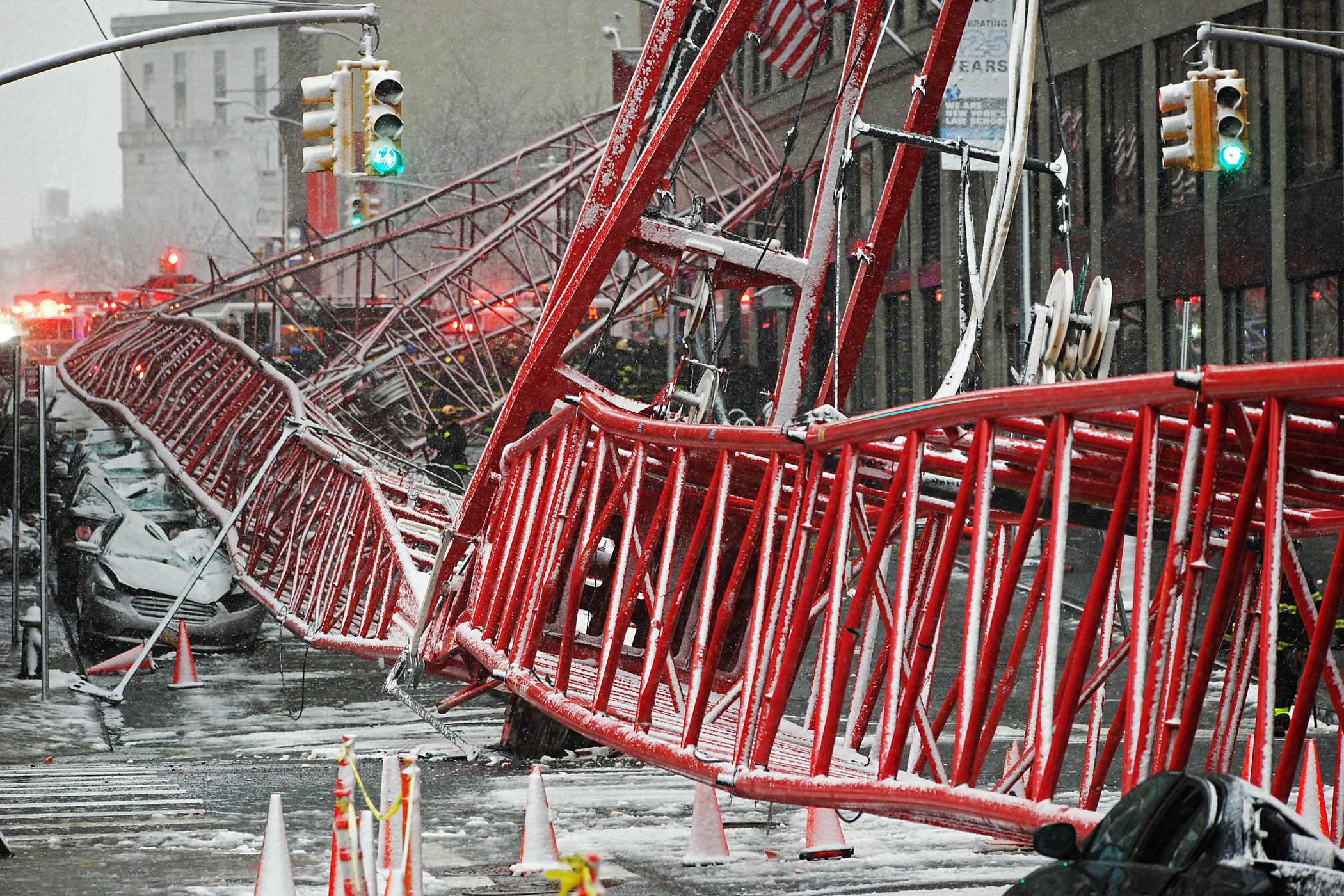
The falling crane killed one person and crushed several cars parked along Worth St.
BY YANNIC RACK |
The city has formed a panel to investigate the crane collapse that shook Worth St. in Tribeca earlier this month, with the aim of better regulating the massive machines.
Last week Mayor de Blasio announced the members of a working group to investigate the cause of the collapse and recommend new policies to improve crane safety across the city.
“We put the safety of our people first. This is a group of dedicated professionals that will ensure we have strong, science-based policies in place to protect New Yorkers as we continue to build the greatest city in the world,” he said in a statement.
The move comes three weeks after a 565-foot crawler crane collapsed on Worth St. between Hudson St. and West Broadway killing a man and injuring three others. The crane, which had been used to lift equipment onto the roof of the former Western Union Building at 60 Hudson St., toppled over on the morning of Feb. 5 as workers were trying to lower it due to strong winds.
Over the next three months, the panel members will evaluate the circumstances surrounding the collapse and propose additional “best practices and regulations” to make crane operations safer, according to the city.
Before releasing its recommendations, the group will also consult with members of the Dept. of Buildings’ existing Crane Rules Advisory Committee, which reviews updates to the city’s crane regulations, and includes representatives from the construction industry.
According to the mayor’s office, the panel’s first task will be to determine whether current wind restrictions on crawler cranes reflect the best science.
Soon after the collapse, the mayor announced a range of new measures, including a directive to lower crawler cranes into safety mode whenever steady winds are forecast to exceed 20mph — down from 30mph — and an increase in minimum fines for crane operators from $4,800 to $10,000.
“We are determined to improve the safety both of cranes and the neighborhoods in which they work by implementing lessons learned from the collapse earlier this month,” said Buildings commissioner Rick Chandler in a statement.
The members of the technical working group are Mary C. Boyce, dean of engineering at The Fu Foundation School of Engineering and Applied Science at Columbia University; Katepalli R. Sreenivasan, president of NYU Polytechnic School of Engineering and dean of Engineering at New York University; Peter J. Madonia, chief operating officer of the Rockefeller Foundation; Bill Goldstein, who most recently served as senior advisor to the mayor for recovery, resiliency, and infrastructure; and Wayne A. Crew, general secretary of the National Academy of Construction.
Although a press release emphasized that none of the members currently have “pending business before the city” — and would therefore be independent — two of them have prominently served various city and state agencies.
Madonia was the chief of staff to former mayor Michael Bloomberg prior to joining the Rockefeller Foundation, and has also served as first deputy commissioner of the Fire Department, deputy commissioner for budget and operations at the Department of Buildings, and chief of staff to the deputy mayor for operations.
Goldstein has held executive positions at the MTA Capital Construction Company, the city’s School Construction Authority and the Port Authority of New York and New Jersey.






























